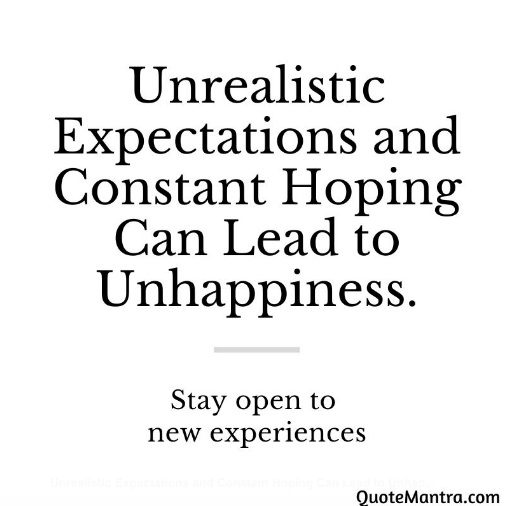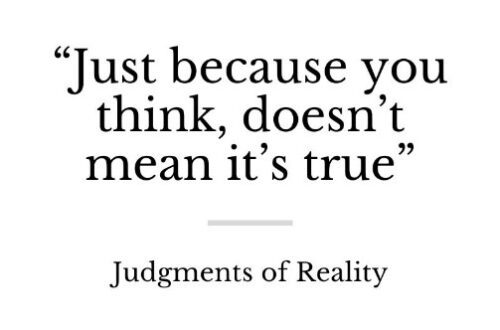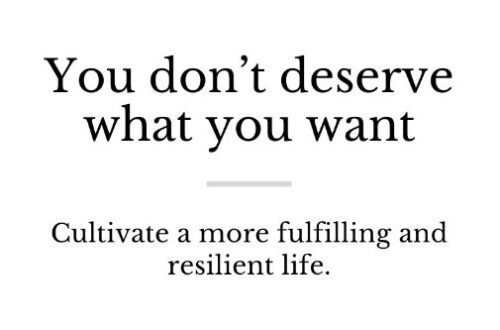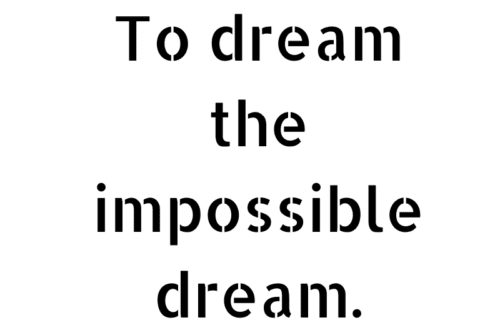
Unrealistic Expectations and Constant Hoping Can Lead to Unhappiness.
As the world is making its mark in infrastructure development, financial growth, and various different areas. As Institutions are pushing humanity towards achieving more, towards material gains. An aspect deep-rooted in human beings by knowingly or unknowingly ignored. In this article will find How Unrealistic Expectations and Constant Hoping Can Lead to Unhappiness.
How Unrealistic Expectations and Constant Hoping Can Lead to Unhappiness.
As human beings, we all have hopes, dreams, and aspirations for our lives. We set goals, make plans, and work hard to achieve what we want. However, sometimes our expectations and hopes can become unrealistic, and we may find ourselves constantly hoping for something that may not be achievable. This can lead to feelings of disappointment, frustration, and even unhappiness.
The problem with constantly hoping for something is that it can make us feel like our lives are incomplete without it. We may become fixated on a particular outcome, whether it’s getting a certain job, finding the perfect partner, or achieving a particular level of success. We may believe that if we just work hard enough or wait long enough, our hopes and dreams will eventually come true.
However, the reality is that life is full of uncertainties and things don’t always go as planned. When we place all our hopes and expectations on a particular outcome, we can become vulnerable to disappointment and unhappiness. We may feel like we have failed or that life has let us down when things don’t turn out the way we had hoped.
Furthermore, constantly hoping for something can prevent us from finding happiness and fulfillment in other areas of our lives. We may become so fixated on our goals and aspirations that we overlook the good things that are happening in the present moment. We may fail to appreciate the relationships, experiences, and opportunities that are already present in our lives because we are too focused on what we don’t have.
So, what can we do to avoid the trap of unrealistic expectations and constant hoping? Here are a few suggestions:
1. Practice gratitude: Instead of focusing on what we don’t have, we can consciously appreciate what we do have. We can take time each day to reflect on the things we are grateful for, whether it’s a loving relationship, a fulfilling job, or good health. Practicing gratitude can help us to cultivate a more positive outlook on life and find happiness in the present moment.
2. Set realistic goals: While it’s important to have goals and aspirations, it’s equally important to set achievable and realistic goals. Setting too lofty or unrealistic goals can set us up for disappointment and frustration. By setting realistic goals, we can experience a sense of accomplishment and satisfaction when we achieve them.
3. Stay open to new experiences: When we become fixated on a particular outcome, we may overlook other opportunities that could bring us happiness and fulfillment. By staying open to new experiences, we can discover new passions, interests, and relationships we may have missed.
4. Embrace uncertainty: Life is full of uncertainties, and sometimes things don’t go as planned. Instead of fighting against uncertainty, we can learn to embrace it and see it as an opportunity for growth and learning. By embracing uncertainty, we can become more resilient and adaptable to change.
In conclusion, while it’s natural to have hopes, dreams, and aspirations for our lives, it’s important to remain open to the possibility that things may not turn out as we hoped. By avoiding the trap of unrealistic expectations and constant hoping, we can find happiness and fulfillment in the present moment and embrace the uncertainties of life with grace and resilience.
Also read: Focus – Most important aspect of life





